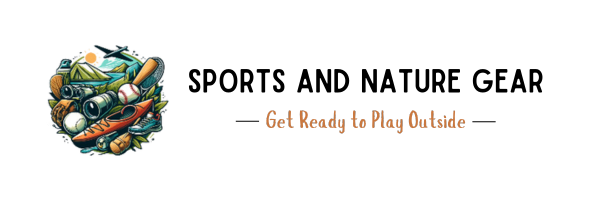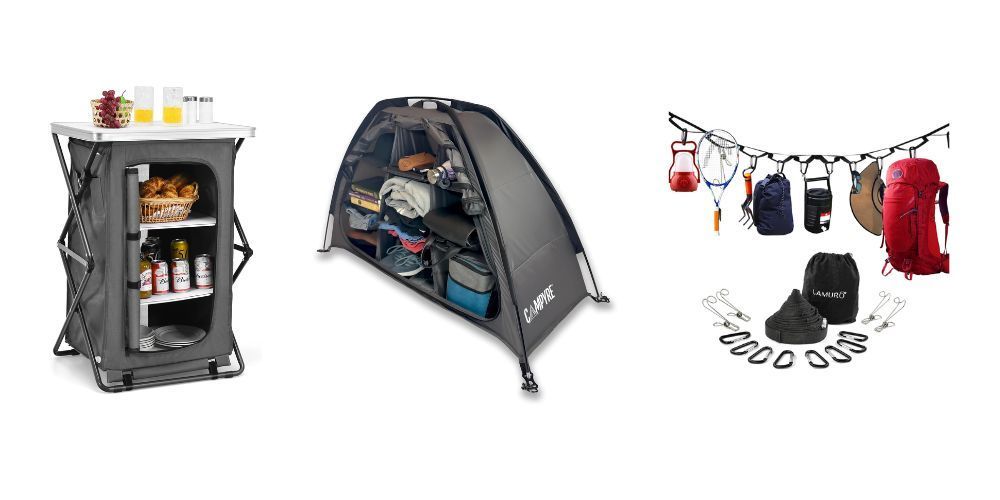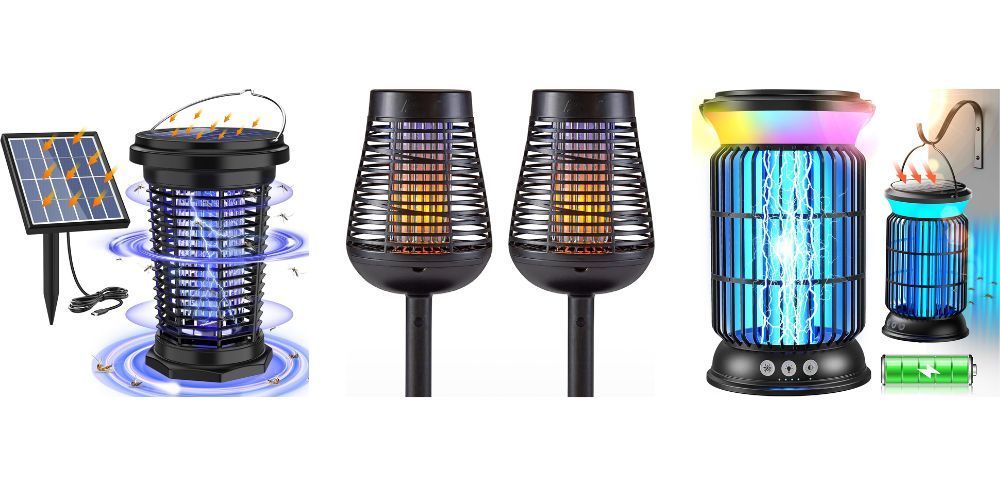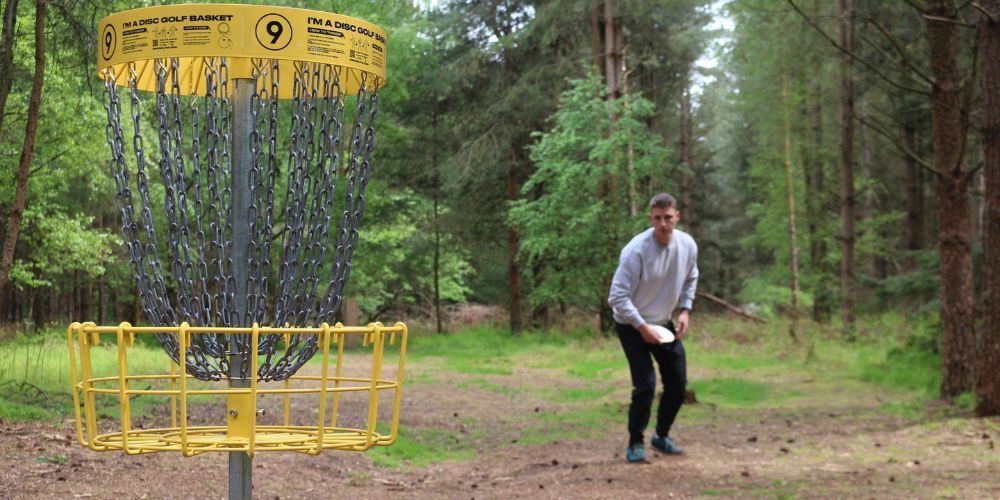Pickleball Etiquette: The Do's and Don'ts for a Successful Game on the Court
August 7, 2024
Playing pickleball isn't just about quick reflexes and strong serves; it's also about understanding and respecting court etiquette. A good game requires more than skill—courtesy and consideration play vital roles in ensuring everyone enjoys their time on the court. We've gathered insights from experienced players to put together comprehensive guidelines for you.
While some might see these games as informal, adhering to proper etiquette can make a world of difference. It prevents those awkward moments and keeps the game flowing smoothly, fostering better social interactions both during and after your matches. With these do's and don'ts, you'll not only enhance your own game but also contribute positively to the overall experience for everyone involved.
When playing pickleball, it is important to abide by court etiquette. Some common do's include respecting your opponent, calling the score clearly, and waiting for your turn to play. On the other hand, common don'ts involve avoiding distractions during play, refraining from stepping over the kitchen line unless necessary, and refraining from coaching your partner during rallies.
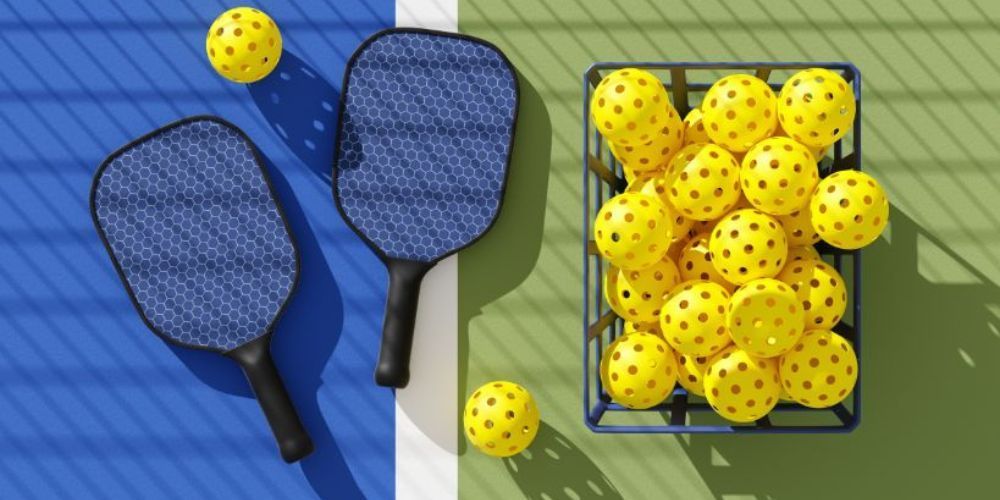
The Most Important Etiquette Rules
Respect is key in any social sport, and it's no different in pickleball. Always honoring court reservation times is vital. Imagine being excited to play, only to find another group still occupying the court well into your reserved time—courtesy goes a long way in ensuring everyone has an enjoyable experience.
Treating others the way you wish to be treated seems like a simple rule we learn as children, yet it's one of the cornerstones of a successful game. Not only does this ensure a positive atmosphere where everyone can enjoy the game, but it also fosters a sense of camaraderie, making the game more enjoyable for all participants.
Now, there may be times when line calls are disputed. In such situations, it's crucial to remember that trust and fair play are at the forefront of pickleball etiquette. If there's any uncertainty about whether a ball was in or out, deferring the decision to the opposing team promotes sportsmanship and camaraderie.
Entering the court while a point is still ongoing can be disruptive and may affect player concentration. Waiting for play to finish before stepping onto the court helps maintain a smooth flow of game and shows consideration towards fellow players.
By following these fundamental etiquette rules, you're not only helping to create an environment where everyone can enjoy the game in a respectful and fair manner but also setting an example for others to follow.
Moving from general etiquette guidelines to specific conduct during gameplay requires a closer look at what makes for a successful and harmonious match on the pickleball court.
Conduct During Gameplay
Once the game begins, adhering to specific behavioral norms is crucial for maintaining a fair and enjoyable experience for everyone involved. Beyond following basic rules, etiquette during gameplay fosters a positive atmosphere and ensures that the game proceeds smoothly.
One fundamental aspect of gameplay etiquette is maintaining the proper serve order and rotation rules. This not only avoids confusion but also ensures that all players have a fair chance to engage in the game. The serve rotation should be followed strictly, with each player taking their turn to serve and rotate according to the established rules. This aspect of the game keeps everyone involved and prevents any unfair advantages from emerging.
Avoid Distractions
Another key point to remember is refraining from actions intended to distract your opponent. Excessive movement or loud noises during their serve or rally can disrupt their focus, leading to an unfair advantage. Being mindful of your movements and keeping noise levels at a minimum can enhance the overall fairness of the game. It's about respecting your opponent's concentration and ensuring that everyone has an equal opportunity to perform at their best.
Consider this scenario: A player intentionally moves around excessively or makes unnecessary noise during their opponent's serve, which breaks their rhythm and concentration. This behavior not only disrupts the flow of the game but also reflects poorly on sportsmanship.
In addition to avoiding deliberate distraction, it’s essential to play at a reasonable pace. Maintaining a steady rhythm keeps the game engaging and respectful of everyone's time. Prolonged breaks between points or games can disrupt the momentum of the match and inconvenience other players waiting for their turn on the court.
For example, pausing frequently between points can cause unnecessary delays in the game, leading to frustration for both opponents and other players waiting to use the court.
Etiquette during gameplay isn’t just about following rules; it's about ensuring fairness, respect, and consideration for everyone involved in the game. By upholding these principles, players contribute to a positive, enjoyable atmosphere where competition thrives within a framework of mutual sportsmanship and camaraderie.
Embracing these etiquette guidelines sets the stage for smooth communication on the pickleball court. Let's dive into effective ways of fostering clear communication throughout the game.
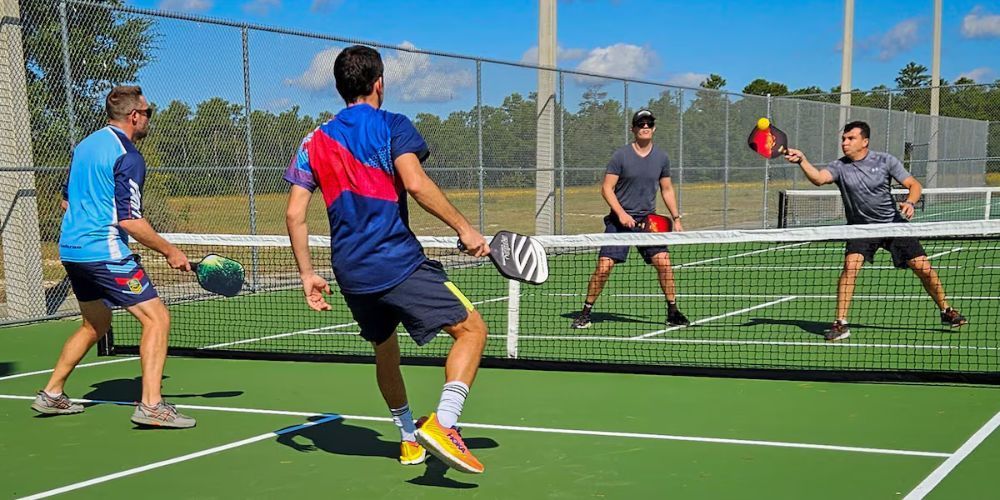
Communication Guidelines
Pickleball is not just about hitting a ball back and forth; it demands teamwork, strategy, and coordination among players. Effective communication between partners is crucial to anticipate moves, share strategies, and respond to opponents.
Partner Coordination
Effective communication with your partner in pickleball is crucial for a successful game. By clearly signaling your intentions and coordinating strategy, you can maximize your team's effectiveness on the court. Consider matching each other's positioning, sharing shot calls, and discussing tactics between points. For example, if you plan to attack the net, it’s important to let your partner know beforehand so they can adjust their position accordingly.
Respectful Disagreement
Disputes about strategy or positioning can arise, but it's essential to handle these disagreements calmly and respectfully. Heated arguments can detract from the enjoyment of the game for everyone involved. If there’s a disagreement, take a moment to discuss it politely. Remember that pickleball is meant to be fun, and respecting each other's views will help maintain a positive atmosphere during play.
Positive Reinforcement
Positive reinforcement through encouraging comments has a significant impact on the game’s atmosphere. A simple "good shot" or "nice play" directed at your partner or opponents can go a long way in boosting morale and maintaining a friendly atmosphere on the court. Remember, pickleball is not just about winning or losing – it's also about ensuring that everyone enjoys themselves on the court.
By coordinating with your partner effectively, addressing disagreements peacefully, and offering positive reinforcement, you create an environment where every player feels valued and respected.
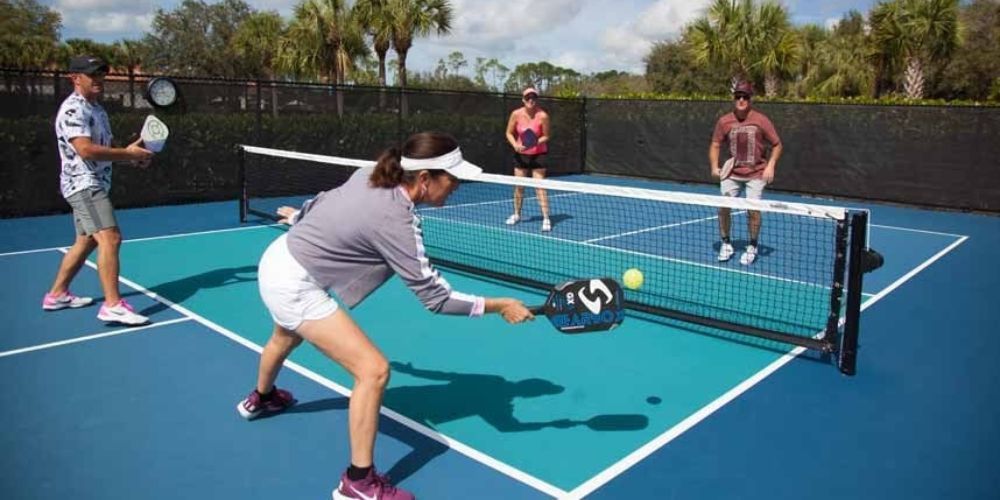
Managing Noise Levels
Pickleball is a dynamic and energetic game, filled with lively rallies and exciting moments. However, it's crucial to maintain an appropriate noise level to respect others' focus and concentration and ensure an enjoyable experience for everyone on the court.
One of the critical aspects of managing noise levels in pickleball is to use indoor voices, especially when playing in enclosed or close-quartered spaces. Remember, carrying on loud conversations can be disruptive to neighboring games. Imagine trying to concentrate on your own match while being surrounded by loud chatter from other players—it's a distraction that can disrupt the flow of the game and impede one's ability to focus on strategic gameplay.
Similarly, celebrating points and victories should be done modestly. While it's natural to feel elated after scoring a point or winning a rally, excessive loud celebrations might disturb other players and even be considered unsportsmanlike. It's essential to strike a balance between expressing your joy and maintaining an atmosphere of respect for your fellow players.
Another key element of managing noise levels is cell phone etiquette. To prevent unnecessary distractions, always set your phone on silent mode or vibrate during gameplay. If you receive an urgent call that needs your attention, stepping off the court to take the call demonstrates respect for others' concentration and minimizes disruptions that could affect the flow of the game.
Consider this scenario: You're engrossed in an intense rally when suddenly, a neighboring player's loud conversation becomes a distraction, causing you to lose focus. It's a situation that many players can relate to, highlighting the significance of maintaining appropriate noise levels during play.
By being mindful of noise levels on the pickleball court, players create an environment that fosters sportsmanship, fair play, and mutual respect. This not only enhances the overall playing experience but also contributes to a harmonious atmosphere where everyone can fully enjoy the game.
Effectively managing noise levels is a fundamental aspect of pickleball etiquette, ensuring that all players can engage in spirited matches with minimal distractions.
Showing Respect on the Court
Respect is a fundamental principle that defines the ambiance and sportsmanship on the pickleball court. Whether playing competitively or casually, displaying respect towards your fellow players enriches the overall experience for everyone involved. Here are some essential ways to show respect on the court:
Return Balls Promptly Returning balls promptly is more than just a courteous act; it demonstrates consideration and awareness of others' games. When a stray ball from another game rolls onto your court, promptly and politely returning it not only exemplifies good sportsmanship but also maintains the flow and integrity of both games.
Imagine focusing intensely on your game when an errant ball suddenly interrupts your attention. By promptly returning wayward balls, you aid in creating an environment where all players can concentrate on their matches without unnecessary interruptions. This simple act fosters camaraderie and respect within the pickleball community.
Acknowledge Good Play Pickleball, like any sport, is built on moments of skill and finesse. When your opponents execute exceptional shots or plays, acknowledging their prowess by recognizing and complimenting their efforts goes a long way in promoting sportsmanship and mutual respect.
In a fast-paced game like pickleball, it's crucial to appreciate the talent of your opponents. This exchange of compliments strengthens the bonds between players and fosters an environment of positive energy and friendship.
Share the Court During peak hours when courts are crowded, cooperation becomes pivotal. Being willing to rotate or share court time with other players ensures that everyone gets a fair chance to play. This spirit of cooperation across all skill levels not only nurtures inclusivity but also showcases respect for others' eagerness to enjoy the game.
Imagine a scenario where several players are waiting while a few individuals monopolize the courts. Being open to rotating or sharing court time ensures that everyone has an opportunity to partake in the sport they love. This fosters goodwill among fellow players and cements a harmonious playing atmosphere.
The essence of showing respect on the court extends beyond personal conduct. Next, we'll explore how proper handling of disputes or disagreements during a match contributes to maintaining an amicable atmosphere on the pickleball court.
Essential Do's and Don'ts
Pickleball etiquette and unwritten rules are just as important as the techniques and rules of the game itself. They govern how players conduct themselves on the court, ensuring a harmonious and respectful environment for all participants. Here are some essential do's and don'ts to keep in mind during your next pickleball match.
Do: Stay Hydrated
Staying hydrated is crucial for maintaining physical endurance and mental focus during play. Keep a water bottle within easy reach to sip on during breaks or timeouts. This is especially important during longer matches or in warm weather conditions when hydration is key to sustaining peak performance.
Dehydration can lead to diminished cognitive function and reduced physical output, ultimately affecting your gameplay. By keeping a water bottle at hand, you'll be able to refresh yourself and maintain energy levels throughout the match.
Don't: Hog the Ball
In doubles play, it's important to promote fairness and teamwork by sharing opportunities with your partner. Avoid dominating the playtime, allowing your partner equal involvement in the game. This not only makes the game more balanced and enjoyable but also strengthens partnership dynamics.
Hogging the ball can lead to frustration and dissatisfaction among teammates, harming overall team morale. By being conscious of your partner's involvement, you contribute to a positive playing atmosphere that benefits everyone.
Do: Warm-Up Properly
Before diving into the game, take time to warm up your muscles to prevent injuries and optimize your playing performance. Start with light stretching to prepare your body for the physical demands of the sport. By gradually increasing your heart rate and flexibility, you reduce the risk of strains or sprains during gameplay.
Just like warming up before a workout or run, coordinating pickelball requires physical readiness which can be achieved through proper warmup exercises.
Don't: Ignore Injuries
If you experience pain or sustain an injury during play, it's vital to take immediate action. Ignoring an injury can aggravate the condition and lead to prolonged recovery periods. Stop playing immediately and seek appropriate medical care to address any discomfort or injury effectively.
Pushing through an injury can exacerbate the damage, impacting not only your immediate well-being but also potentially causing long-term implications. Prioritizing timely treatment ensures both personal health and continued quality of play in future matches.
Adhering to these essential do's and don'ts fosters a positive pickleball environment where fair play, safety, and sportsmanship prevail.
In conclusion, mastering pickleball etiquette enhances not only individual games but also contributes to cultivating a pleasant and enriching playing community for all enthusiasts.
What are the basic rules of pickleball etiquette?
Pickleball etiquette is about showing respect and sportsmanship on the court. Here are some essential guidelines:
• Respect the Serve: Allow the server to concentrate by avoiding unnecessary chatter or movement. Be ready to receive the serve in a timely manner.
• Call the Score Clearly: The server should call out the score before each serve, ensuring everyone is on the same page. This helps maintain clarity and fairness.
• Line Calls: Make honest line calls on your side of the court. If there’s any doubt about whether a ball was in or out, give the benefit of the doubt to your opponent.
• Be Ready to Play: Keep the game moving by being ready for your turn. This includes having your paddle and ball ready and avoiding excessive delays between points.
• Respect Opponents and Partners: Maintain a positive attitude, whether winning or losing. Encourage your partner and opponents, and avoid blaming others for mistakes.
By following these guidelines, you contribute to a positive and enjoyable experience for everyone involved in the game.
How can I avoid conflicts on the pickleball court?
Conflicts on the pickleball court can arise from misunderstandings or breaches of etiquette. To minimize these issues:
• Communicate Effectively: Use clear and calm communication with your partner and opponents. Discuss any concerns or disagreements politely and with an open mind.
• Admit Mistakes: If you make an error, such as a wrong line call, admit it promptly and apologize. Honesty and accountability can defuse potential tensions.
• Stay Calm: If a disagreement arises, keep your composure. Avoid raising your voice or arguing aggressively. Take a deep breath and approach the situation with a solution-focused mindset.
• Follow the Rules: Adhere to the official rules of pickleball. If you’re unsure about a rule, consult the rulebook or ask for clarification from a more experienced player.
By fostering a spirit of cooperation and understanding, you can help prevent conflicts and ensure a smooth, enjoyable game for all players.
What should I do if I accidentally hit someone with the ball?
Accidentally hitting someone with the pickleball can happen, especially during intense rallies. Here’s how to handle the situation gracefully:
• Apologize Immediately: Stop play and sincerely apologize to the player who was hit. Acknowledge that it was unintentional and express your concern for their well-being.
• Check on Their Condition: Ask if they are okay and offer assistance if needed. Sometimes, a ball strike can be painful, so showing empathy and care is important.
• Continue the Game Respectfully: After ensuring the player is okay, resume the game with a focus on playing safely and being aware of the ball’s direction during rallies.
• Learn from the Incident: Reflect on what led to the accidental hit and consider how you can avoid similar situations in the future, such as adjusting your position or shot angle.
Being courteous and empathetic in these situations demonstrates good sportsmanship and helps maintain a positive atmosphere on the court.
Check out the latest guides on pickleball gear
Author: William Flaiz
